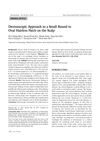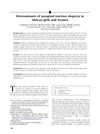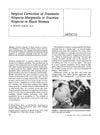Trichotillomania and Traction Alopecia
May 2017
in “
InTech eBooks
”

TLDR Hair pulling disorder is treated with therapy and medication; hair loss from tension can be reversed if caught early.
The document from 2017 discusses trichotillomania, a disorder characterized by repetitive hair pulling, and traction alopecia, hair loss caused by prolonged tension on the hair. Trichotillomania is more common in females and is often triggered by stress, with a lifetime prevalence of 3.4% for women and 1.5% for men. Diagnosis is clinical and can involve tools like the Massachusetts General Hospital Hair Pulling Scale, trichoscopy, and histopathology. Treatments include cognitive and behavioral therapies, antipsychotic agents, SSRIs, and tricyclic antidepressants, with cognitive and behavioral therapies showing effectiveness, especially when combined with pharmacotherapy. A small randomized trial with 50 adults found N-acetyl-cysteine (NAC) more effective than placebo for trichotillomania, but it was not beneficial in children and adolescents. Traction alopecia is more common in females, particularly of African ancestry, with a high prevalence noted in South African women and schoolgirls. It is reversible in early stages but can lead to permanent scarring. Diagnosis involves recognizing clinical signs and using dermoscopy, while treatment focuses on avoiding tension-causing hairstyles and may include medications like corticosteroids or minoxidil, with surgical options for extensive cases.

















